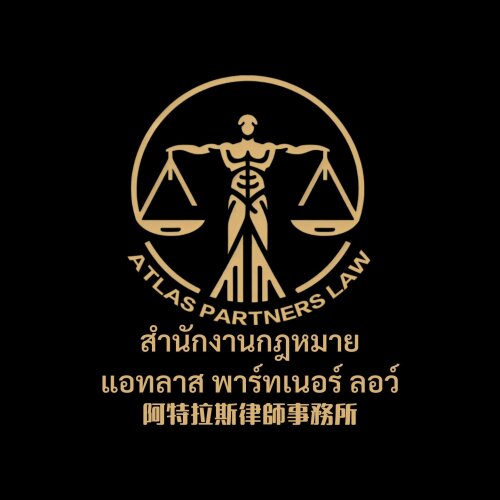Best E-commerce & Internet Law Lawyers in Chiang Mai
Share your needs with us, get contacted by law firms.
Free. Takes 2 min.
List of the best lawyers in Chiang Mai, Thailand
About E-commerce & Internet Law in Chiang Mai, Thailand
E-commerce & Internet Law in Chiang Mai, Thailand, is a rapidly evolving field, reflecting the global rise in digital transactions and online services. This area of law covers everything from online consumer protection and data privacy to intellectual property and electronic contracts. With Chiang Mai emerging as a hub for digital nomads and tech startups, understanding the legal landscape surrounding e-commerce activities is crucial for businesses and individuals alike. The laws aim to ensure fair trade practices while protecting both consumers and businesses operating online.
Why You May Need a Lawyer
There are various scenarios in which you might require legal assistance in E-commerce & Internet Law in Chiang Mai:
- Starting an online business and needing to navigate local regulations.
- Facing disputes regarding online transactions or contracts.
- Need to protect your digital intellectual property, such as trademarks and copyrights.
- Handling data breaches or compliance with Thailand's data protection laws.
- Ensuring adherence to consumer protection laws specific to online shopping.
- International trade and the implications on online sales tax and tariffs.
Local Laws Overview
Chiang Mai follows the national Thai laws concerning E-commerce & Internet activities. Key aspects include:
- Thailand's Personal Data Protection Act (PDPA): This governs how personal data is collected and processed in the digital space and emphasizes consent and security.
- Electronic Transactions Act: Establishes the legal framework for electronic contracting and authentication methods.
- Computer Crime Act: Deals with offenses related to computer systems and unauthorized access to information.
- Consumer Protection Act: Protects consumer rights, including regulations on advertising and online sales practices.
Frequently Asked Questions
What are the steps to legally start an e-commerce business in Chiang Mai?
You'll need to register your business, comply with tax obligations, adhere to PDPA for data protection, and ensure you meet any industry-specific legal requirements.
How does the PDPA affect my online business?
You must implement measures to protect personal data, obtain consent for data collection, and allow users to access or request deletion of their data.
Is an electronic contract legally binding in Thailand?
Yes, under the Electronic Transactions Act, electronic contracts are legally recognized as long as they meet basic contract law requirements.
What should I do if I receive a notice for an alleged online defamation?
Consult with an attorney to understand your rights and obligations. The Computer Crime Act has specific provisions regarding online speech and defamation.
How can I protect my online brand in Thailand?
Register your trademarks with the Department of Intellectual Property and consider copyright registration for your digital content.
What are the consequences of a data breach?
Under the PDPA, you may face fines and be required to notify affected parties and regulatory bodies promptly.
Can I sell products online to other countries from Thailand?
Yes, but you must comply with international trade laws, taxes, and customs regulations. Consider consulting with a legal expert for cross-border transactions.
What legal documents are essential for an e-commerce website?
Terms and Conditions, Privacy Policy, and Return and Refund Policy are critical documents to have in place.
How does the Consumer Protection Act affect my online sales?
You must ensure truthful advertising, clear product descriptions, and comply with the rules regarding product returns and refunds.
How do I resolve a dispute with an e-commerce platform in Thailand?
Start by reviewing the platform's dispute resolution process, and if necessary, consult a lawyer to explore further legal options.
Additional Resources
- Department of Business Development (DBD) for business registration guidance.
- Office of the Personal Data Protection Commission for PDPA compliance.
- Thai Ministry of Digital Economy and Society for updates on internet regulations.
- Department of Intellectual Property for trademark and copyright registration.
Next Steps
If you find yourself in need of legal assistance in E-commerce & Internet Law in Chiang Mai, consider the following steps:
- Identify and clearly define the specific legal issue or question you are facing.
- Consult with a specialized lawyer in E-commerce & Internet Law to explore your options.
- Prepare all relevant documents and information that might be needed for your legal consultation.
- Consider attending workshops or seminars provided by local legal firms or governmental bodies to stay informed about current laws and practices.
Lawzana helps you find the best lawyers and law firms in Chiang Mai through a curated and pre-screened list of qualified legal professionals. Our platform offers rankings and detailed profiles of attorneys and law firms, allowing you to compare based on practice areas, including E-commerce & Internet Law, experience, and client feedback.
Each profile includes a description of the firm's areas of practice, client reviews, team members and partners, year of establishment, spoken languages, office locations, contact information, social media presence, and any published articles or resources. Most firms on our platform speak English and are experienced in both local and international legal matters.
Get a quote from top-rated law firms in Chiang Mai, Thailand — quickly, securely, and without unnecessary hassle.
Disclaimer:
The information provided on this page is for general informational purposes only and does not constitute legal advice. While we strive to ensure the accuracy and relevance of the content, legal information may change over time, and interpretations of the law can vary. You should always consult with a qualified legal professional for advice specific to your situation.
We disclaim all liability for actions taken or not taken based on the content of this page. If you believe any information is incorrect or outdated, please contact us, and we will review and update it where appropriate.








